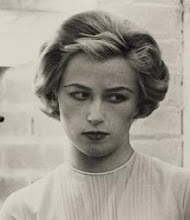So I've been reading science fiction again. Not a big surprise--there was a period of time (roughly from age 10 to 16) where I read nothing BUT science fiction, before embarking on a self-designed Great Books survey.
Anyway: I needed a book to read on the flight home from San Francisco, so I picked up a copy of
Iain M. Banks'
Matter, one of his Culture novels. For those of you who aren't familiar with his work, the Culture is a space opera series set in a human civilization that has evolved beyond such petty concerns as money, economy, gender, government, or living on planets. As that describes the place I want to live in one day, I'm a big fan. I also re-read two of Vernor Vinge's postmodern space operas,
A Fire Upon the Deep and
A Deepness in the Sky. And that got me thinking of one of the grandparents of postmodern space opera, Larry Niven and Jerry Pournelle's
The Mote in God's Eye. (Warning: there be spoilers below.)
In case you haven't heard of it,
TMiGE sets out to reverse the classic "first contact" story: instead of hideously advanced aliens showing up over a backwards earth, in the novel the
humans are the advanced aliens with an interstellar empire who discover an alien race confined to one star system. The Moties, as they are called by the humans, aren't hicks: a "differentiated" species that has several subspecies that rely heavily on instinctive knowledge, the Moties are the equivalent of an entire race of experts: their Engineer subspecies can barely talk, but can repair advanced machinery after only a cursory inspection of it; the Mediator class can talk the hind legs off a mule; and the Warrior class are born tacticians, generals, and special ops fighters. (Moties also change sex after being pregnant, regularly cycling between male and female, which is kinda cool.)
It's a fun read, but of course there's a lot of built-in FAIL. (You were expecting something different from the work of two white sci-fi authors in the '70s?) The sexism isn't just cultural, it's built into the characters: the one human female is consistently airheaded, muddle-minded, and wrong about everything--how she is supposed to be a "doctoral candidate" is beyond me. (She is a noble, so that may be explained.) Besides providing a mouthpiece for liberal strawviewpoints, her primary function is to comfort the crew and be the love interest for the dashing captain. I suppose this could be cultural criticism--after all, the humans not only have revived feudalism in their empire, but the
Catholic frakkin' church as well; that might be giving them too much credit. (Plus they seem not to have read anything ever written by a woman or even encountered a woman in everyday life, based on Sally's characterization.)
Then there's the Motie subspecies. This is actually a clever idea...until you take a look at how it's organized. The primary way to tell Moties apart is by the color of their fur: Warriors are red colored, Doctors rust colored, Engineers brown colored--and the Masters, the subspecies genetically determined to lead all the other subspecies are white.
Yeah. You read that correctly. In the Motie species, white guys
literally are genetically superior to the brown guys. Holy frak.
But that's not the most bizarre aspect of the Motie civilization. The central mystery in the book, the thing that the Moties try hard to hide, is that they are doomed to a constant cycle of the collapse of civilization--millions of years, thousands upon thousands of falls into barbarity. And the reason? I'll let a Motie explain:
"That's the whole secret. Don't you get it yet? Every variant of my species has to be made pregnant after she's been female for a while. Child, male, female, pregnancy, male, female, pregnancy, 'round and 'round. If she doesn't get pregnant in time, she dies."
I suppose this makes a certain very, very strange sense--a sort of evolutionary impetus on steroids, if you will. But what doesn't make sense is that in Niven and Pournelle's world, pregnancy always equals childbirth.
Think about that one.
I mean, let's just go with the idea that somehow becoming pregnant makes a Motie healthy again--that there is some hormonal change that occurs after the Blessed Event that she needs, and somehow can't be simulated even by the genius Motie doctors (Huh? How? Why? WTF?) Somehow, though, it isn't getting pregnant or even
staying pregnant for a length of time that's the key--it's actually giving birth. Which is just a boggle: there's Something Important about the Motie vagina, I guess.
And of course, abortion is never mentioned. The closest the book comes is to say that the Motie equivalent of birth control would be infanticide. (What? How? The Pill just doesn't work on Moties? Do these guys know
anything about mammalian female physiology? WTF?)
That's right--in the future, abortion is literally unthinkable. At least, nobody thinks about it. But of course the special Magic Motie Vagina probably explains all this.
Why am I taking all this time to rag on a book from the 1970s, you ask? Because of this:
--Because even then two popular male writers could create a scenario that was grossly ignorant of the female body
--Because I've never heard a male fan of the book ever wonder why the hell the Moties don't have abortions
--Because it's astonishing that the subject
never even comes up given the nightmare parody of female reproduction the book creates.
--Because this book could be written today, and all my objections would remain; because abortion and women's control over their bodies still remains a taboo subject in much of the world's literature; because that silence contributes to the oppression of women's reproductive rights.
And let's not get into the book's other nightmare (super-fertile brown aliens are going to invade our country and breed all over the place, destroying civilization!) I'll leave that one for Lou Dobbs to take care of.
